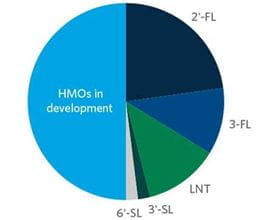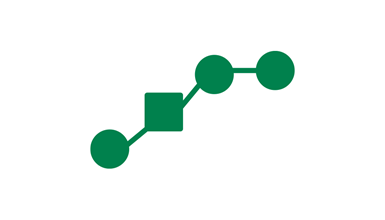Lacto-N-tetraose (LNT)

The human milk oligosaccharide LNT (Lacto-N-Tetraose) is one of the most abundant HMOs in breast milk and represents the group of basic neutral HMOs.


The nitrogen-containing LNT is one of the most important prebiotics in human milk. It selectively supports the growth of desirable bifidobacteria and thus contributes significantly to the development of a natural microbiome in newborns1, 2.
In addition, LNT was shown to exhibit immune supportive benefits3.
Additional functional benefits of LNT also include reducing challenges due to harmful bacteria by inhibiting the adhesion of harmful bacteria,4 and by binding of harmful bacterial proteins5. Growth of harmful bacteria has been shown to be reduced upon addition of the neutral HMO6.
MyOli is a trademark of Chr. Hansen A/S.
1 Bode, Lars. “Human milk oligosaccharides: prebiotics and beyond.” Nutrition reviews 67.suppl_2 (2009): S183-S191.
2 Gotoh, Aina, et al. “Sharing of human milk oligosaccharides degradants within bifidobacterial communities in faecal cultures supplemented with Bifidobacterium bifidum.” Scientific reports 8.1 (2018): 1-14.
3 Özcan, Ezgi, and David A. Sela. “Inefficient metabolism of the human milk oligosaccharides lacto-N-tetraose and lacto-N-neotetraose shifts Bifidobacterium longum subsp. infantis physiology.” Frontiers in Nutrition 5 (2018): 46.
4 Craft, Kelly M., and Steven D. Townsend. “The human milk glycome as a defense against infectious diseases: rationale, challenges, and opportunities.” ACS infectious diseases 4.2 (2018): 77-83.
5 El-Hawiet, Amr, Elena N. Kitova, and John S. Klassen. “Recognition of human milk oligosaccharides by bacterial exotoxins.” Glycobiology 25.8 (2015): 845-854.
6 Lin, Ann E., et al. “Human milk oligosaccharides inhibit growth of group B Streptococcus.” Journal of Biological Chemistry 292.27 (2017): 11243-11249.